#reginald perrin
Text

Leonard Rossiter
#suitdaddy#suiteddaddy#suit and tie#suited daddy#men in suits#silverfox#suitfetish#three piece suit#waistcoat#suited men#suited grandpa#suitedman#suit daddy#buisness suit#suitedmen#british man#british men#actors#reginald perrin#Leonard Rossiter
28 notes
·
View notes
Text
youtube
The Fall And Rise Of Reginald Perrin
4 notes
·
View notes
Text
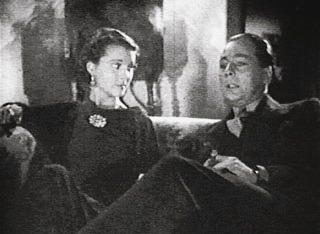
Vivien Leigh-Leslie Perrins "The village squire" 1936, de Reginald Denham.
2 notes
·
View notes
Text
“The Fall and Rise of Reginald Perrin” s3e1 (1978)
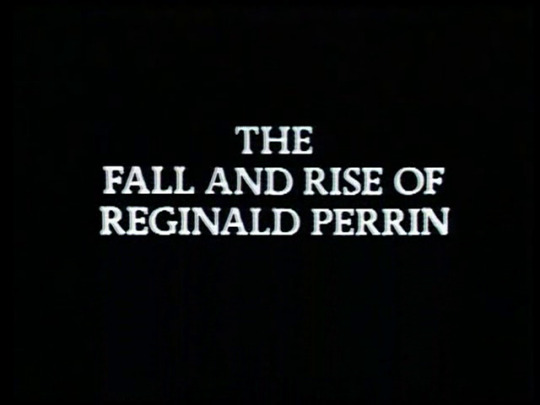
A little bit better than the previous episode. Partly because a lot of the focus is on Geoffrey Palmer as Jimmy, and partly because the resort opens and there's a lot of role-play hijinks with the first guest. All very amusing.
7/10
0 notes
Text
If you got rid of the Very seventies sexism, The Fall and Rise of Reginald Perrin would do numbers on tumblr.
2 notes
·
View notes
Text

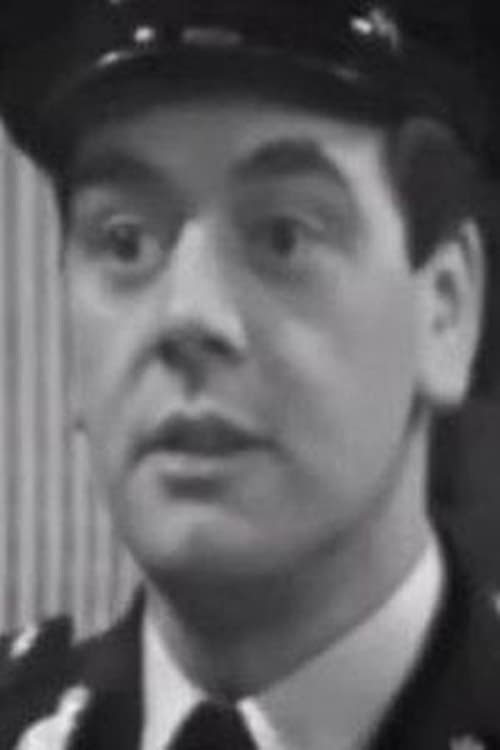

The actor Joseph Brady was born on October 9th 1928 in Glasgow.
One of a large Glaswegian working-class family, Brady spent five years in the Merchant Navy, before, encouraged by his sister, deciding to become an actor. In 1958, he graduated from the Royal Scottish Academy of Music and Drama as “best comedy actor” and “most promising male actor”.
He was given a year’s contract at the Glasgow Citizens’ Theatre, and spent a year at Perth Theatre before joining the cast of the popular police drama Z Cars as PC Jock Weir.
Brady’s character, a rugby-playing Scot, was one half of the Z-Victor 1 team, with “Fancy” Smith (Brian Blessed). The series began with a newly formed group of uniformed officers, driving the then fashionable Ford Zephyrs and dealing with violence, robbery and domestic issues in “New Town”. During his time on the show Joseph recorded two songs by his fellow countryman Tommy Scott.
After leaving the police series in the late 1960s, he played the lead in the BBC’s 17th-century costume drama The Borderers, which ran for 26 episodes from 1969 to 1970. This gave him the opportunity to dye his hair red - and, enthusiastically, to learn to ride a horse.
After that, he alternated between stage and television. His television appearances included Dr Finlay’s Casebook, Taggart, The Bill The Fall and Rise of Reginald Perrin, Casualty and Gramps in Rab C Nesbit
His Scottish theatre works mainly centred around Edinburgh’s Lyceum where he appeared in many productions, including Hadrian VII, The Taming Of The Shrew, and the epic Satire Of The Third Estates. In 1974, he joined very strong casts in Bill Bryden’s plays Benny Lynch and Willie Rough at the Lyceum. Other plays included The Bevellers, written by fellow Scot Roddy McMillan.
In 1985, he was in The Seagull, with Vanessa Redgrave, at the Haymarket, London and in 1988, he was in Billy Roche’s big success, A Handful Of Stars, at the Bush Theatre, west London. One of his favourite roles was that of the young boxer Joe Bonaparte’s father in the National Theatre’s 1984 production of Clifford Odets’s Golden
Joseph ‘Joe’ Brady died June 12th 2001 in London.
6 notes
·
View notes
Text
HIGNFY's Guest Webterview: David Mitchell
During this interview, David Mitchell crashed and rebooted himself several times for no identifiable reason.
Q1. The Radio Times recently named you "The Best Comedy Panel Show Guest". What do you think you do well? And what do you personally get out of appearing on them?
It's not for me to say. I enjoy doing panel shows because it's fun and off the cuff and you get to say whatever pops into your head and when it's funny it gets in the programme and when it's not they cut it out. The main shows I do - Peep Show and the sketch show for BBC2 - take a lot of time to prepare. You write for weeks and weeks and then you film it all very slowly and it's cold and it's long days. I do like doing that sort of thing, but it's very nice also to do something where it's like a fun chat in the evening.
Q2. You're most famous for your work with Robert Webb, but do you think you could have made it on your own? Would you have wanted to?
It's been great working with Rob as we get on very well and we have the same sense of humour. Writing as a partnership is a lot easier and I think when we perform together we're kind of greater than the sum of our parts, so I'm very grateful to that. I think we're better as a double act than we would have been singularly, and also having someone else there who's going through the same crisis of 'Is this going to work out? Is it not?' really helps.
Q3. Peep Show is now firmly established as one of the finest sitcoms of recent times, but if you could have played any role in any sitcom ever made, which one would you go for?
I think I'd quite like to have been CJ in the Fall and Rise or Reginald Perrin. I think that's a great part. I did some sketches actually in the show that's coming out next year which were basically like a spoof of a seventies sitcom where I got to play this sort of irascible boss character. I hasten to add it was a spoof of a much less good seventies sitcom than the Fall and Rise of Reginald Perrin was, but I really enjoyed playing that kind of angry boss who's never satisfied his employees efforts in that very 70s, regimented business way.
Q4. You and Robert came under some criticism for your roles in the Mac vs. PC adverts, including accusations of selling out and betrayal. Why do you think people take their comedy and comedians so seriously? Do you think any of the criticism was justified?
I think there's plenty of justification in taking comedy seriously. God knows I do. I think people, particularly in this country, really care about comedy and that's why when they don't like a new show it gets absolutely ripped to shreds in the press, rather than people going 'Oh never mind. You had a go. Didn't work out'. It can be very demoralizing for people that make a comedy show that doesn't work and see such waves of hatred in the media and on the internet. But at the same time there's a plus side to that which is that I think people accept in this country that when a comedy show does work, it's the best show. It's better than when a drama works out. It's better than the best cookery programme or documentary. So the stakes are higher in comedy. I think people care about it more and so they get angry when they don't like it, and consequently they get angry when comedians from shows they like do things they don't think they should have done. I think the accusation of selling out is absurd. I mean our services were always for sale: we were paid to do Peep Show; we were paid to the adverts; and I don't think in any way by doing Peep Show we implied that we wouldn't have been up for a totally legitimate advertising campaign which is what we did, and which is what dozens of comedians have done for decades. So I don't remotely accept the criticism, but I think the intensity of it derives from the extent to which the British cherish comedy.
Q5. How do you think your style of comedy fits in with the general British 'scene'? Do you think you offer something different?
I hope Rob and I do things that are different, but we're not consciously groundbreaking - we want to be funny rather than different, but you have to be original or you won't be funny. In a weird way, although I'm very proud to do Peep Show, I think it's more of a trendy, zeitgeisty show than I ever imagined myself doing, and perhaps a lot of that comes from the writing which Sam Bain and Jesse Armstrong do so brilliantly. But I like to think of being part of a classic British comedy tradition rather than a smash up the smash up the rule book? Rip up the rule book. Smash up the china shop of rules.
Q6. What is next?
Rob and I have got to write a book - coming out next Christmas - that's our next job because apparently to get a book out in time for Christmas you have to finish it in March. You'd think you'd just have to press 'print', but it seems it's more complicated than that. We've just finished a new series of the sketch show and that will be out in February on BBC2, we're doing Peep Show again next year, and we're working on the pilot of a sitcom Rob and I have written, so all being well we'll be shooting that next year as well.
1 note
·
View note
Photo
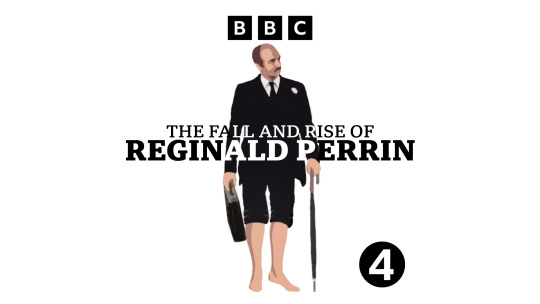
Series image for the new Radio 4 comedy/dramatisation of The Fall and Rise of Reginald Perrin staring David Haig. I mixed of archive imagery and Photoshop treatments to achieve a faithful remix of a genuine classic.
Part One: https://www.bbc.co.uk/programmes/m001f4h7
Part Two: https://www.bbc.co.uk/programmes/m001fch1
1 note
·
View note
Text

Leonard Rossiter
#suitdaddy#suiteddaddy#suit and tie#daddy#silver fox#silverfox#suited daddy#suit#suited#men in suits#british man#british men#leonard rossiter#rising damp#The Fall and Rise of Reginald Perrin#Reginald Perrin#2001: A Space Odyssey#Barry Lyndon#Britannia Hospital#actors
13 notes
·
View notes
Text
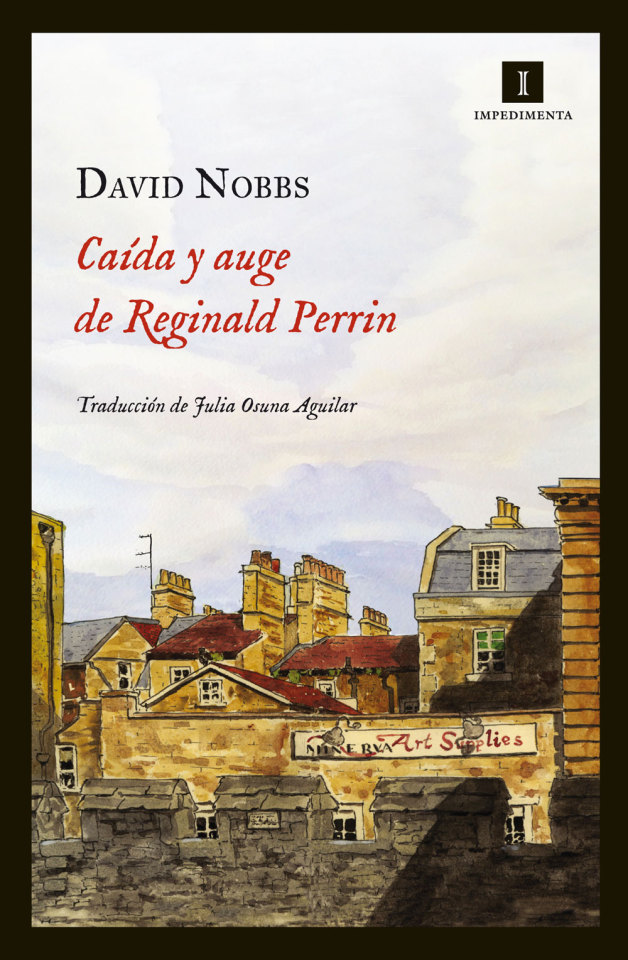
Caída y auge de Reginald Perrin
Inspiradora de una de las comedias televisivas más famosas de todos los tiempos, Caída y auge de Reginald Perrin es una obra maestra del género humorístico en el ámbito anglosajón. Su protagonista, Reginald Perrin, es un hombre gris; un mediocre e infeliz ejecutivo de ventas cuarentón, que malgasta sus días en la empresa Postres Lucisol, sometido a un jefe estúpido para el que desempeña un trabajo alienante, mientras lleva una vida suburbana al lado de su esposa y una familia plagada de gorrones. Hasta que un día, entregado a continuas fantasías que le apartan momentáneamente del sopor, decide tirarlo todo por la borda y dar el gran paso: desaparecer sin dejar el menor rastro, simular su propio suicidio, y adoptar una segunda identidad para volver a comenzar desde cero.
0 notes
Video
John Horsley and Sue Nicholls, The Fall and Rise of Reginald Perrin [1976]
28 notes
·
View notes
Text
“The Fall and Rise of Reginald Perrin” s3e1 (1978)

A script that reinvents the series yet again. This time, Reggie will be running a self-help commune with most of the old mob dragged along. Despite moments that feel right out of Monty Python, it all suddenly feels a bit tired.
Leslie Schofield takes over the role of Tom for this series only. Tim Preece will return.
7/10
1 note
·
View note
Text
David Nobbs
"Democracy?’ said the landlord. ‘Democracy’s finished. It’s a dead duck. I look at it this way. I was a socialist. Now I run a pub. I’m a conservative. Why? Self-interest. What sort of a bloody system’s that? No, I’d abolish democracy tomorrow if it was me.’ ‘How?’ said Reggie. ‘Referendum,’ said the landlord."

The Fall and Rise of Reginald Perrin
The Return of Reginald Perrin
The Better World of Reginald Perrin
#David Nobbs#Reginald Perrin#Author#Authors#Literature#Books Read#Quotation#The Fall and Rise of Reginald Perrin
1 note
·
View note
Photo

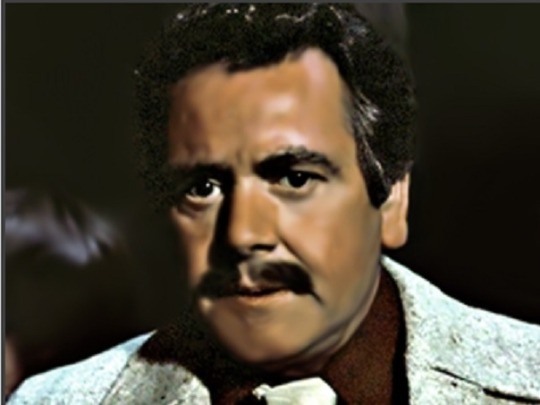
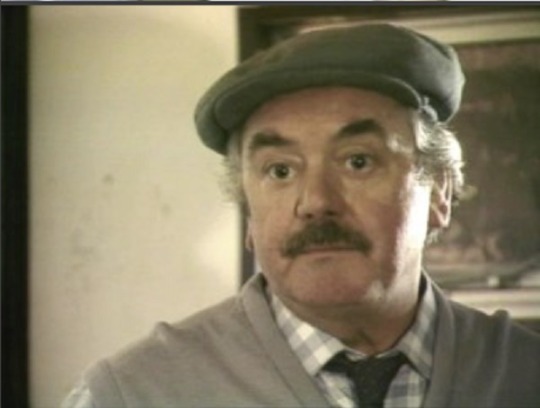
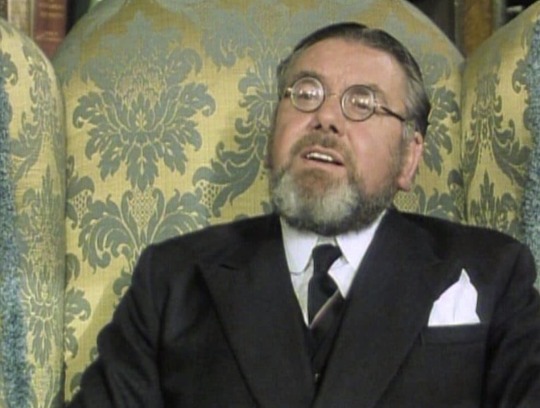

The actor Joseph Brady was born on October 9th 1928 in Glasgow.
One of a large Glaswegian working-class family, Brady spent five years in the Merchant Navy, before, encouraged by his sister, deciding to become an actor. In 1958, he graduated from the Royal Scottish Academy of Music and Drama as “best comedy actor” and “most promising male actor”.
He was given a year’s contract at the Glasgow Citizens’ Theatre, and spent a year at Perth Theatre before joining the cast of the popular police drama Z Cars as PC Jock Weir.
Brady’s character, a rugby-playing Scot, was one half of the Z-Victor 1 team, with “Fancy” Smith (Brian Blessed). The series began with a newly formed group of uniformed officers, driving the then fashionable Ford Zephyrs and dealing with violence, robbery and domestic issues in “New Town”. During his time on the show Joseph recorded two songs by his fellow countryman Tommy Scott.
After leaving the police series in the late 1960s, he played the lead in the BBC’s 17th-century costume drama The Borderers, which ran for 26 episodes from 1969 to 1970. This gave him the opportunity to dye his hair red - and, enthusiastically, to learn to ride a horse.
After that, he alternated between stage and television. His television appearances included Dr Finlay’s Casebook, Taggart, The Bill The Fall and Rise of Reginald Perrin, Casualty and Gramps in Rab C Nesbit
His Scottish theatre works mainly centred around Edinburgh’s Lyceum where he appeared in many productions, including Hadrian VII, The Taming Of The Shrew, and the epic Satire Of The Third Estates. In 1974, he joined very strong casts in Bill Bryden’s plays Benny Lynch and Willie Rough at the Lyceum. Other plays included The Bevellers, written by fellow Scot Roddy McMillan.
In 1985, he was in The Seagull, with Vanessa Redgrave, at the Haymarket, London and in 1988, he was in Billy Roche’s big success, A Handful Of Stars, at the Bush Theatre, west London. One of his favourite roles was that of the young boxer Joe Bonaparte’s father in the National Theatre’s 1984 production of Clifford Odets’s Golden
Joseph ‘Joe’ Brady died June 12th 2001 in London.
8 notes
·
View notes
Link
I’m really just kidding, but everyone needs an opinion on the last ep of GOT.
1 note
·
View note
Photo
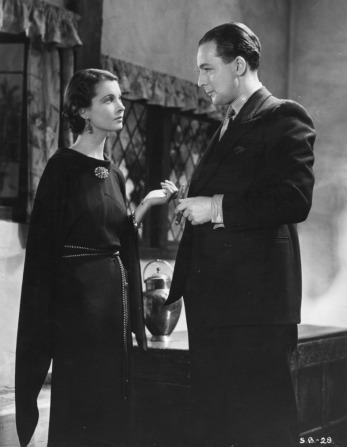
Vivien Leigh-Leslie Perrins “The village squire” 1935, de Reginald Denham.
37 notes
·
View notes